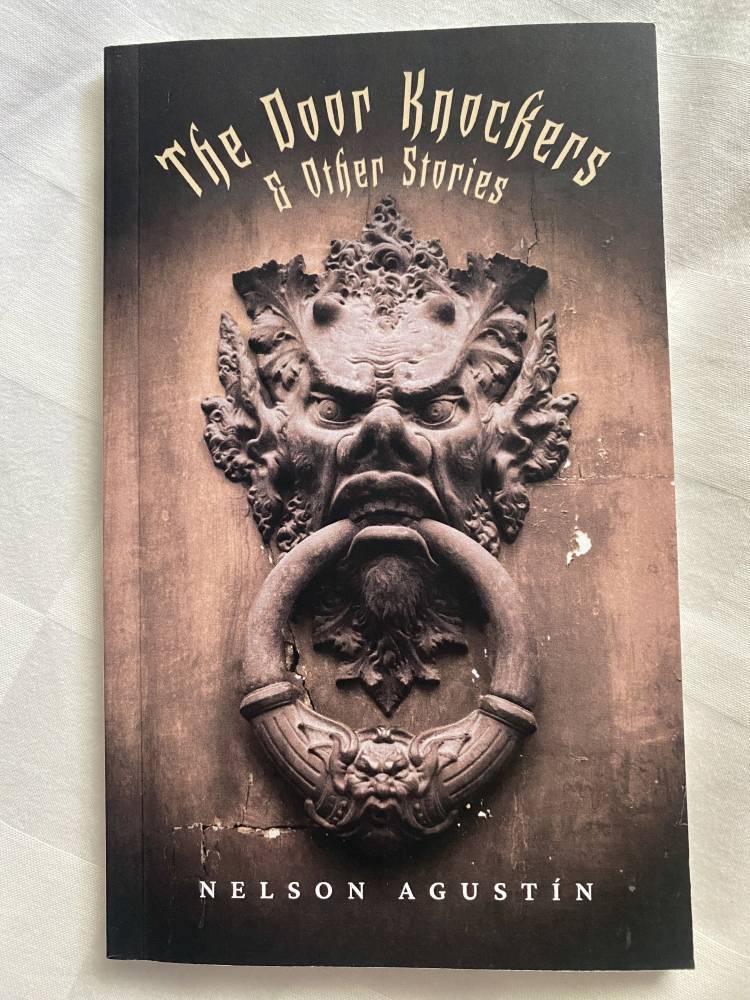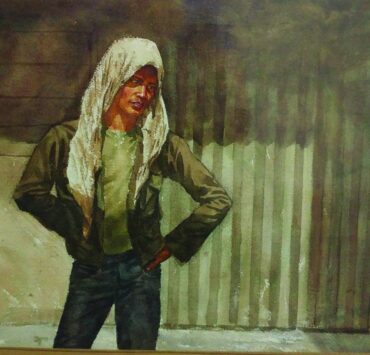Books that can haunt or heal

Looking to escape reality with the supernatural? Dealing with grief? As we remember the dead this season, cozy up with these four unsettling tales of horror, loss and hope.
“The Door Knockers and Other Stories”
Rating: ****
Nelson Agustin’s series of supernatural stories features Filipino mythical creatures, superstitions and eerie events set in Vancouver, BC, Canada. These terrifying tales intertwine subjects such as immigrant diaspora, LGBTQIA+ experiences and urban horror, creating haunting, human portrayals despite their micro-short story format.
“The Door Knockers and Other Stories” embraces flash fiction—concise narratives designed to tell a complete story in a few words, challenging writers to be selective and precise with their language. The discipline it takes to tell a compelling story quickly is “very cutesy, very mindful and very demure,” so relevant in this age of short attention spans.
The slim tome is jam-packed with 13 spooky stories, perfect for that commute to the cemetery. Juxtaposing our aswang, tiyanak and manananggal against a Canadian landscape is shockingly entertaining and will keep you awake.
Agustin wrote the book during the COVID-19 pandemic. What started as creative writing exercises evolved into stories exploring themes of immigrant experiences and struggles of the lesbian, gay, bisexual, transgender, queer, intersex and asexual community, as well as other identities not explicitly mentioned, like pansexual, nonbinary or gender-fluid. Instead of presenting these issues with a heavy hand, Agustin gave them a supernatural twist, using myth as a metaphor for escapism.
“8 Ways to Comfort with Grace”
Rating: **
The palm-sized hardbound booklet “8 Ways to Comfort with Grace” gives the impression that it’s about how ‘80s sexy star and now author Rita Avila dealt with the loss of her baby. But, instead of a self-absorbed expression of mourning, it is more of a half-prayer booklet half-guide on proper funeral/wake etiquette.
It would do well to have a catchier title that would reflect its content better; the title is descriptive, yes, but not eye-grabbing enough. It’s a shame this handy instruction manual for those who never know quite what to do or say to those who have lost a loved one has cover art that might attract the comfort-seeking bereaved instead. In a way, their reading could add solidarity and affirmation for their grief, but the dos and don’ts that address how we should act toward the bereaved would be unnecessary.
Avila includes heartfelt song lyrics at the end, which would have been better translated into English since the entire book was written in English. Nevertheless, it is a good first effort and a necessary one. Perhaps even better would be a collection of her thoughts and feelings as she went through the major stages of her mourning, or maybe including other people’s stories of how they felt in certain situations, so both well-meaning friends and those stumped for words can better empathize with them. Suggest having a site where people can post their stories of grief for the second edition.
“The Book Thief”
Rating: ***
Narrated by Death, “The Book Thief” by Markus Zusak, takes place in Nazi Germany during World War II. It follows Liesel Meminger, a young girl sent to live with foster parents after her brother dies. As the war rages, Liesel starts stealing books and learns to read, finding comfort in words. Her relationships with her foster family and a Jewish man hiding in their basement highlight themes of love, loss and survival in the face of the Holocaust’s horrors.
The first few chapters were a pain to get through, but I sympathized with Liesel and the rest of the likable characters. While it wasn’t surprising how “The Book Thief” could win literary awards, I wondered how this depressing tale was considered young adult fiction. Then again the story unravels in a mature yet playful manner that doesn’t sugarcoat the evils of war. Yet, it personalizes each character’s experiences and humanizes each euphoric or painful situation.
I still don’t think using Death as the narrator added to the melancholy beauty of “The Book Thief,” as it sometimes jarred the telling of the tale for me, but that aside, it was a bittersweet read to end.
“The Angel’s Game”
Rating: ****
The much-awaited pseudo-sequel to author Carlos Ruiz Zafon’s best-selling “The Shadow of the Wind” plateaus with “The Angel’s Game.” The book is reportedly the fastest-selling book by a Spanish author, hot on the heels of its lush and evocative predecessor. Zafon explained that while “The Shadow of the Wind” is the nice, good girl in the family, “The Angel’s Game” is the wicked gothic stepsister.
As in “Shadow,” “The Angel’s Game” is set in 1920s Barcelona with the usual out-of-luck but talented ruffian, this time in writer David Martin. A mysterious publisher offers him a tempting deal to write a book that could inspire a new religion. As David dives into the project, he gets caught in a web of secrets, supernatural events, and obsession. In each unfortunate situation he finds himself in, he is grateful for each smidgen of hope amid his understandable cynicism. You sympathize with the hopelessness of his plight yet root for him anyway.
His curiosity is infectious. However, the loyal reader is rewarded with only more questions. There is no neat little bow to tie this story all up, so don’t expect it. It may not be bleak, but it’s not a comforting read.
More ambitious and humorous than “Shadow,” “The Angel’s Game” is not as engaging perhaps because of its more religious overtones, which doesn’t explain much in the end, unlike, say, Dan Brown’s “Da Vinci” series. But it doesn’t suck either, drawing enough likability from “Shadow”’s characters and setting without staying nice and comfy. It is sad and raw, menacing and frightening.

















